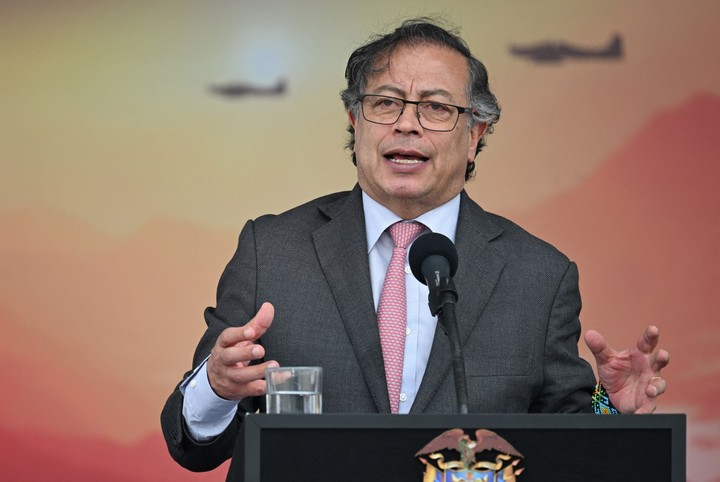Colombia’s most powerful drug traffickers, extortionists and kidnappers will be allowed to keep as much as 12% of their criminal profits in exchange for handing in their weapons under a controversial new bill intended to reduce violence.

In his final year in office, President Gustavo Petro is seeking “total peace” with illegal armed groups that dominate swathes of the countryside. To help achieve that, the administration’s “law of surrender” prioritizes a de-escalation of the conflict over ensuring that gangsters pay for their crimes.
“We sacrifice some retributive justice to maximize other rights: truth, reparations, and non-repetition,” Deputy Justice Minister Yefferson Dueñas said in an interview this week. “Negotiations are difficult to achieve without incentives.”
Amid the biggest cocaine boom in history, the leftist Petro government argues that attempts to suppress illegal armed groups have failed and that creative new approaches are needed. The government is holding formal peace talks with several guerrilla factions, and the bill is necessary to reach a final deal with these groups, according to Dueñas.
“Without the project and the legal framework, the possibility of success of the negotiations is extremely low,” Dueñas said.
Assets surrendered by these groups would be used to compensate victims of the conflict, Dueñas said. Under the plan, the leaders of the groups would also get more lenient sentences in return for handing in their weapons and demobilizing. The government is negotiating with several armed factions, though some powerful actors such as the ELN guerrilla group are not currently in talks.
An Invamer poll published this month found that only 26% of Colombians think the total peace initiative is going well, whereas 67% believe it is going badly.
As the bill is debated in congress, US President Donald Trump is upping pressure on the Andean nation. Colombia has been among Washington’s closest allies in recent decades, but relations have frayed as the Petro and Trump administrations clash over migration, security policy and the unprecedented surge in cocaine production.
Dueñas said that part of the increase in cocaine production is driven by rising demand in new markets, including India and other Asian nations.
Colombia will continue to cooperate with the US even as it tries new strategies, he said. The total peace bill will not alter existing legislation on extradition or international counter-narcotics efforts, he said.
Next month, the Trump administration will decide whether to re-certify Colombia as an ally in the war on drugs. Decertification would put the nation in the same category as Bolivia and Nicolas Maduro’s Venezuela, and limit access to some aid and loans. However, the government sees that as unlikely, according to Dueñas.
“We believe that we must continue supporting the fight against drug trafficking, but through other means that do not necessarily involve weapons,” he said.






